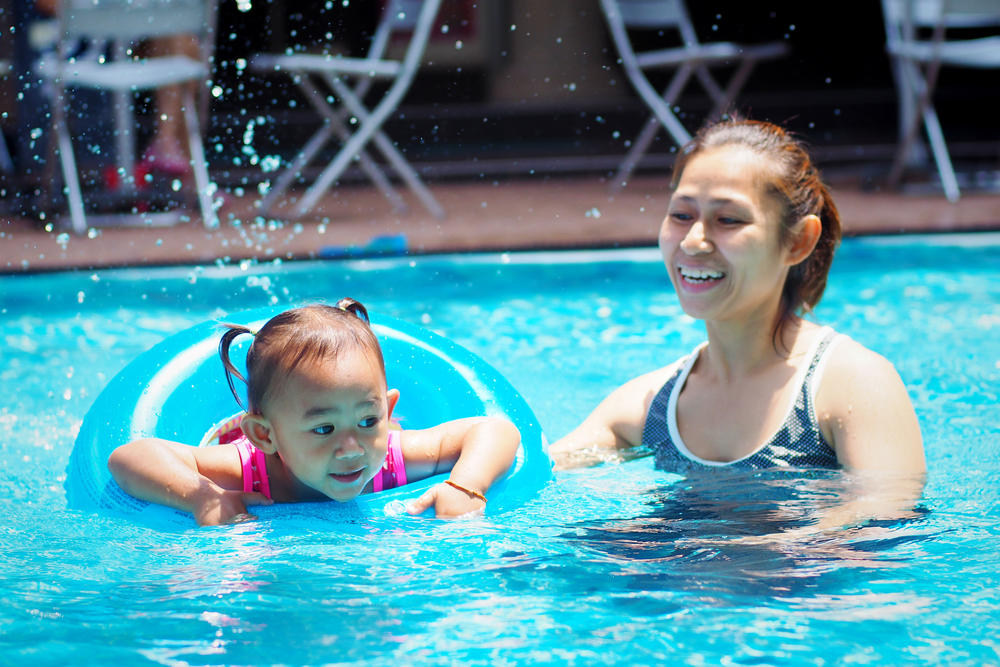Tempted to sign your little one up for swimming lessons this summer? That's a smart move, considering that drowning is a top cause of death among children, according to the American Academy of Pediatrics (AAP).
"While no course can 'drown-proof' a child, a progressive learn-to-swim program can provide your child with skills that will last a lifetime," says Connie Harvey, national health-and-safety expert for the American Red Cross.
The AAP recommends that parents hold off on formal swimming lessons until after their child's first birthday—and you should always consider their "emotional maturity, physical and developmental abilities and limitations, and comfort level" before enrolling them. If you don't think they're ready for swim lessons, consider a parent-child program that focuses on water games, swimming-readiness skills, and safety in and around the pool.

Always take the time to research swim lessons before enrolling. Classes should focus on both swimming skills and "water survival competency skills," says the AAP, and they should be taught by instructors certified through a nationally recognized learn-to-swim curriculum. "There should also be lifeguards on duty who have current CPR and First Aid certification," adds the organization. What's more, the lessons should be age appropriate, and the water should be kept warm and clean.
Whether you enroll in swim lessons or take to the backyard pool, here's how to teach a child to swim at every age.
1 to 2 Years Old
At this age, you simply want to introduce your child to the water. Play in the pool with them yourself, or join a class that focuses on having fun and getting comfortable in the water (instead of learning to swim). Activities may include showing them how to splash, singing songs while bobbing around, and playing gentle games together.
Water Safety Tips:
2 to 3 Years Old
Wondering how to teach a toddler to swim? Your curious tot will be more active in the water now, though they still need an adult to hold them. In your pool or swimming program, play fun games that encourage them to move their arms (for example, throw a ball across the pool and have them reach for it), kick their legs, and float supported on their stomach or back.
Show them how to blow bubbles in the water so they learn to get their face wet without swallowing. By the time they're 3, they may be able to do these things with little help from you.
Water Safety Tips:
4 to 5 Years Old
Now that your child is developing enough coordination to swim by themselves, they can enroll in formal swimming lessons. If they don't have much experience in the water, choose a program that will help them get comfortable. You might be allowed to participate in their first class to make the transition easier.
In the shallow water, your child should learn how to float independently, submerge their head under the water for five to 10 seconds, go from a standing to a swimming position without assistance, glide through the water, reach an exit point, and use coordinated kicking and arm movements. Their swimming class should focus on both water and safety skills.
Water Safety Tips:
6 Years Old and Up
An older child can hold their breath for longer periods of time, swim underwater, and retrieve objects at the bottom. They'll be able to jump into the water and resurface on their own. They can start learning all swimming strokes, including the breast- and backstroke. Their greater endurance will allow them to swim longer distances.
At this point, you don't have to be in the water with your child, but you still need to supervise all pool activities, as they might overestimate their own abilities.
Water Safety Tips:
